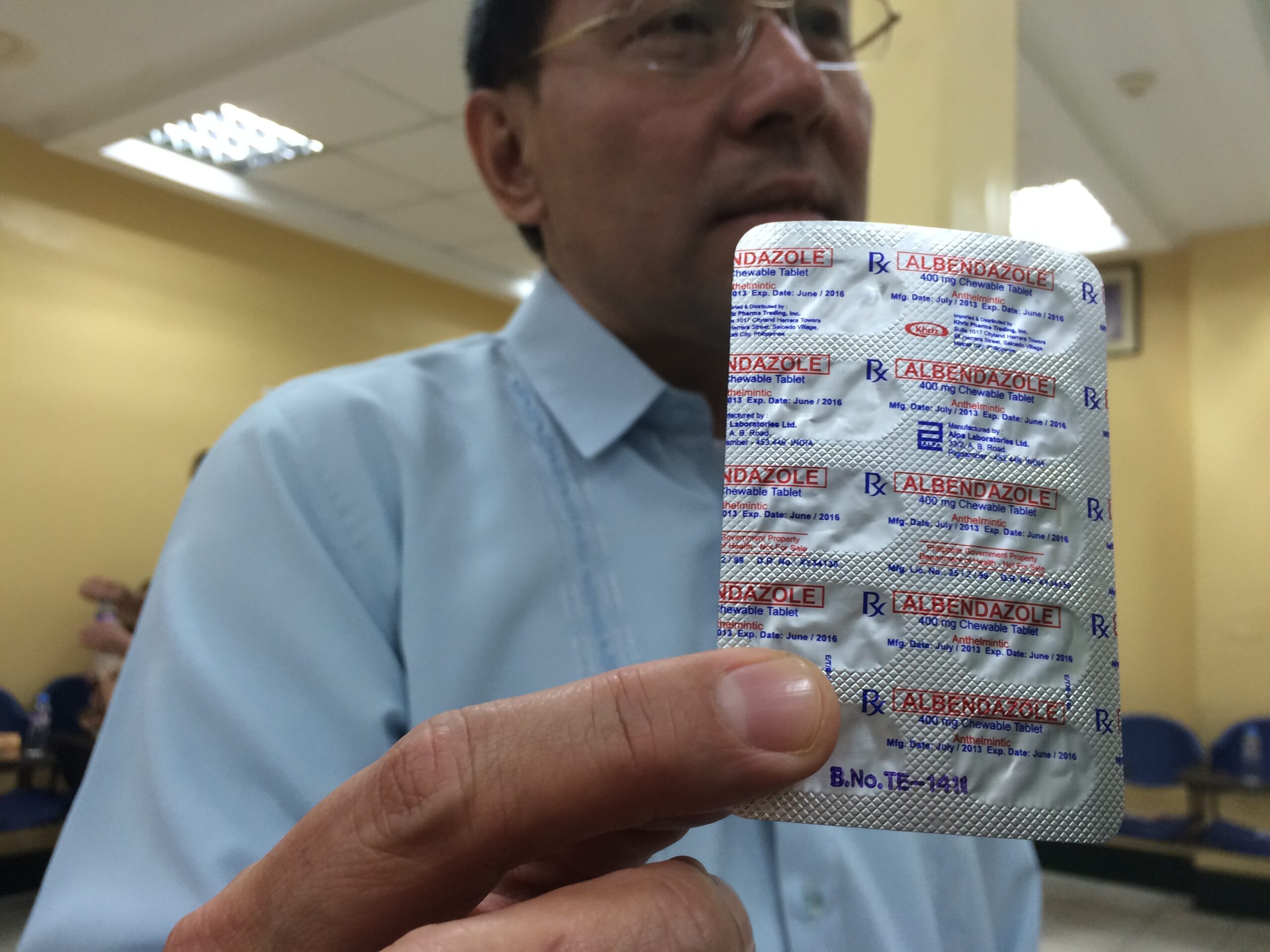SUMMARY
This is AI generated summarization, which may have errors. For context, always refer to the full article.

MANILA, Philippines – The Department of Health (DOH) will resume this month its national school deworming campaign, targeting 19 million school-aged children.
The program also targets 23 million pre-school and school-aged children not enrolled in public schools, who may avail of the free deworming services at health centers, rural health units, and barangay health stations.
“[The] benefits of deworming [is] in terms of nutrition of the child, so there’s better absorption of nutrients, overall health and well-being of the child is greatly improved, the resistance to infection and illnesses is improved, as well as in terms of mental capacities,” Health Secretary Paulyn Ubial said in a press conference Tuesday, January 10.
Ubial said holding the campaign on a nationwide scale twice a year – every January and July – is more effective to eliminate soil-transmitted helminthiasis, especially since the country’s prevalence rate is still at a national average of 66%.
Gundo Weiler, World Health Organization (WHO) Representative to the Philippines, said approximately 2 billion people worldwide are infected with soil-transmitted helminthiasis.
In countries like the Philippines where the infection has a prevalence rate of over 50%, the WHO recommends a bi-annual treatment.
Ubial said the 66% national average is still considered high, and yet there are rural areas where the prevalence rate can go up to 90%.
“The reason for that is…the amount of the ovum or the eggs in the environment is much higher in some areas, particularly those practicing open defecation,” she explained.
“Hopefully, sometime in the future, we can declare certain municipalities and areas of the country as worm-free, especially if the infestation rate is below 20% of the population.”
In JUly 2016, the health department dewormed over 15.85 million public school children aged 5 to 18 years old and 7.88 million pre-school children aged 1 to 4 years old.
Ubial said they want to surpass the 82% coverage in July 2016 and attain an 85% coverage this month.
The budget for the national school deworming campaign increased from P59.8 million ($1.21 million)* in 2016 to P106.3 million ($2.15 million) in 2017.
Of this year’s budget, P82 million ($1.66 million) has been allocated for purchasing the drug itself.
“It’s actually available over the counter, but not P2. It’s around P10 or P15 (each), but for the Department of Health, because of bulk procurement, we get it at P2. It’s available in all health centers schools, so they can use the remaining drugs even after the month, so it’s a continuing campaign,” Ubial explained in a mix of English and Filipino.
Ubial and Weiler appealed to parents and guardians to support the campaign and not to believe wrong information circulating on social media and in the community regarding deworming.
The health secretary said administration of the medicine for deworming is voluntary and will not be done without consent of a child’s parent or guardian.
Taking the medicine may lead to “minimal” side effects like dizziness, nausea, headache, and vomiting. – Rappler.com
*US$1 = P49.47
Add a comment
How does this make you feel?
There are no comments yet. Add your comment to start the conversation.